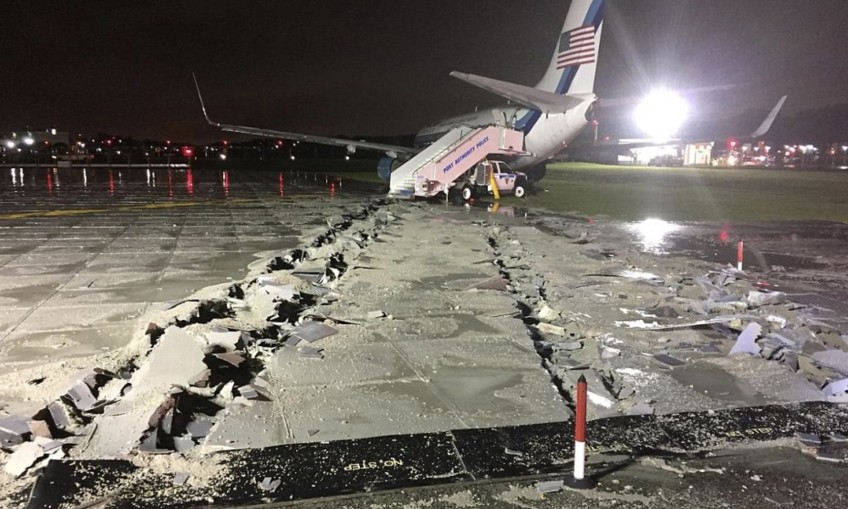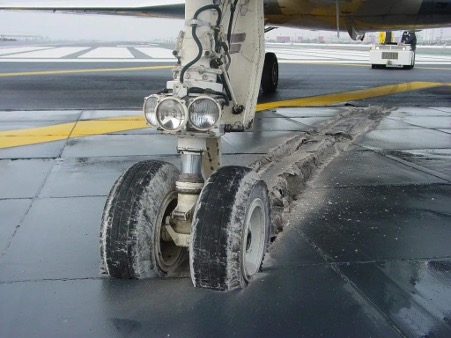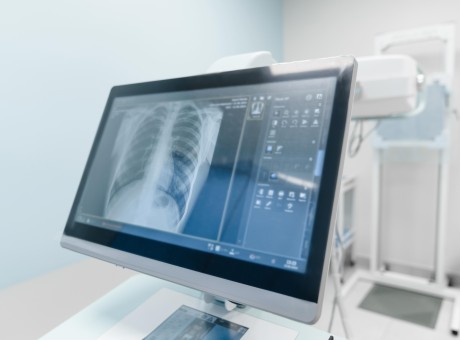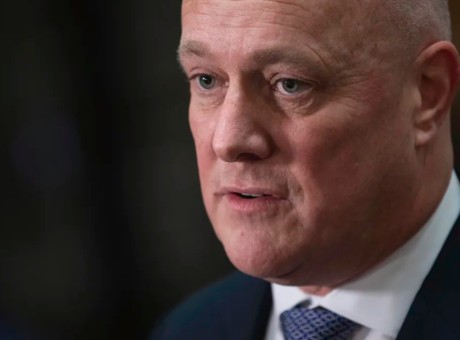Major runway safety project scheduled for Queenstown Airport

A major project to increase runway safety at Queenstown Airport will start in spring.
In a first for Australasia, engineered materials arresting system (EMAS) beds will be installed at each end of the main runway.
These are designed to safely bring an aircraft to a controlled stop with minimal damage should one overshoot the runway.
Board Chair Adrienne Young-Cooper says Queenstown Airport is committed to maintaining the highest standards of safety.

The landing gear of an aircraft that was brought to a safe stop by EMAS technology.
“Our decision to use this innovative technology is evidence of our proactive approach to risk management.
“This is the first project arising from the Master Plan we completed last year, which will guide significant investment in infrastructure this decade.
"We are prioritising improvements to safety, operational efficiency, resilience, customer experience, and sustainability, while ensuring we protect what makes Queenstown Airport unique.”
Queenstown Airport operates with a minimum runway end safety area (RESA) of 90 metres, which complies with civil aviation regulations.
The airport's acting chief executive Todd Grace says the EMAS will substantially increase the margin of safety, providing the same protection as a 240-metre RESA.
“Runway overruns are rare, but the consequences can be catastrophic, so we want to do everything possible to mitigate that risk here.”
The EMASMAX system chosen uses energy-absorbing cellular cement blocks that are designed to crush under the weight of an aircraft, slowing it to a stop.
So far, 128 EMASMAX beds have been installed worldwide - the majority in the United States, but there are others in Norway, the United Kingdom, Spain, Saudi Arabia, China, and Taiwan.
Major airports using the technology include John F. Kennedy International Airport, London City Airport, and Fort Lauderdale-Hollywood International Airport.
To date, EMASMAX beds have safely stopped 22 aircraft – ranging in size from business jets to a Boeing 747 – with a 100 percent success rate. All were in the United States.
Global supplier Runway Safe has been contracted to install the technology at Queenstown Airport.
Work will be completed at night and should be finished by the end of summer.
The project will cost more than $20 million.
There will be no disruption to flight schedules and no change to the types of aircraft that may land at Queenstown Airport.

























